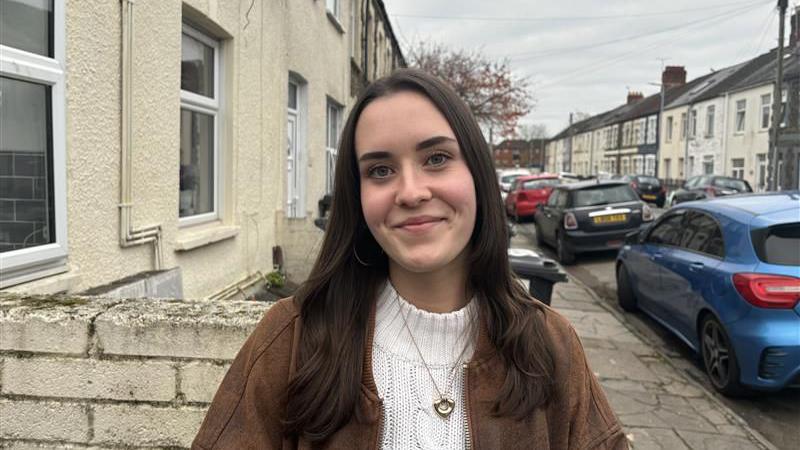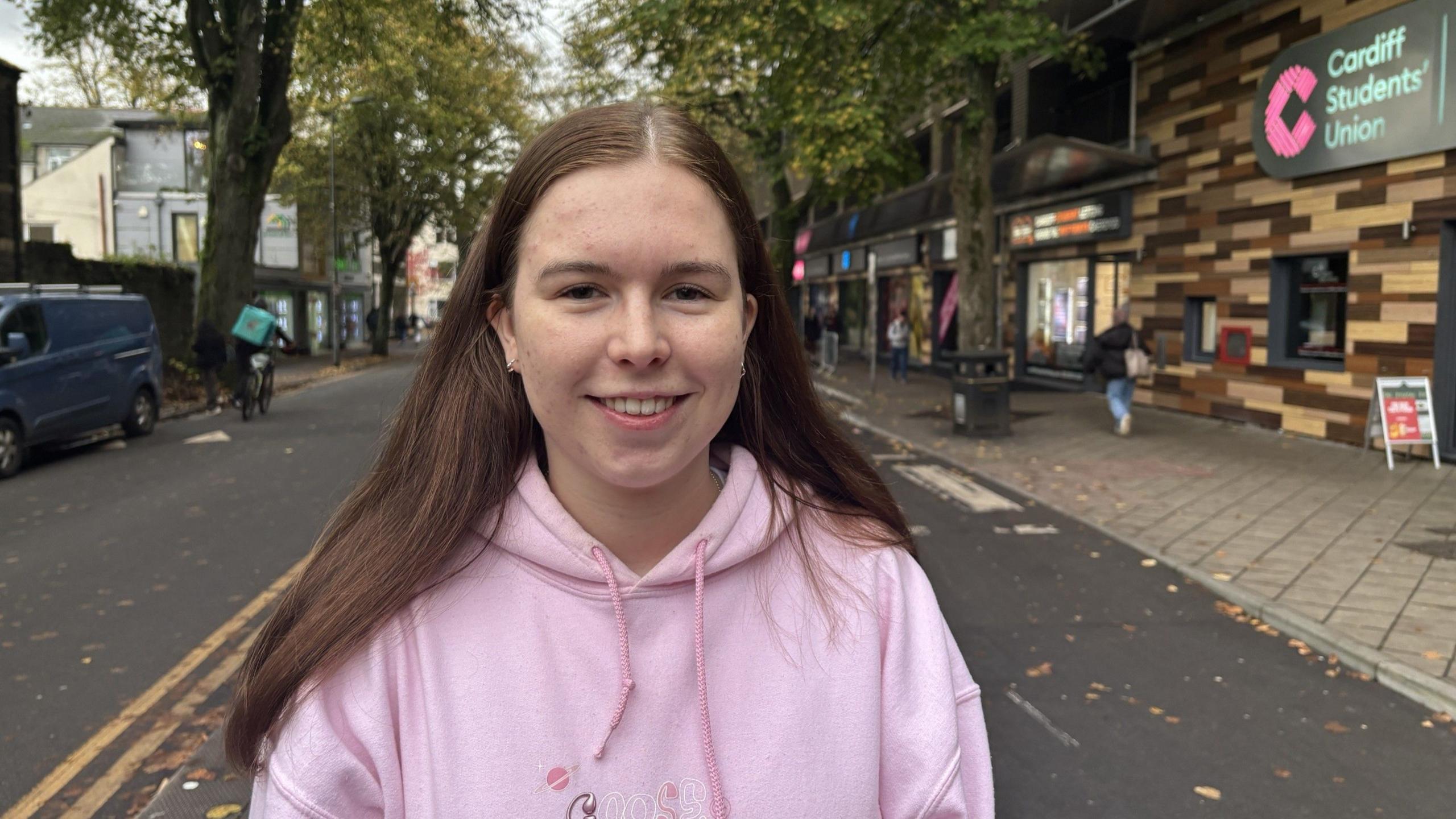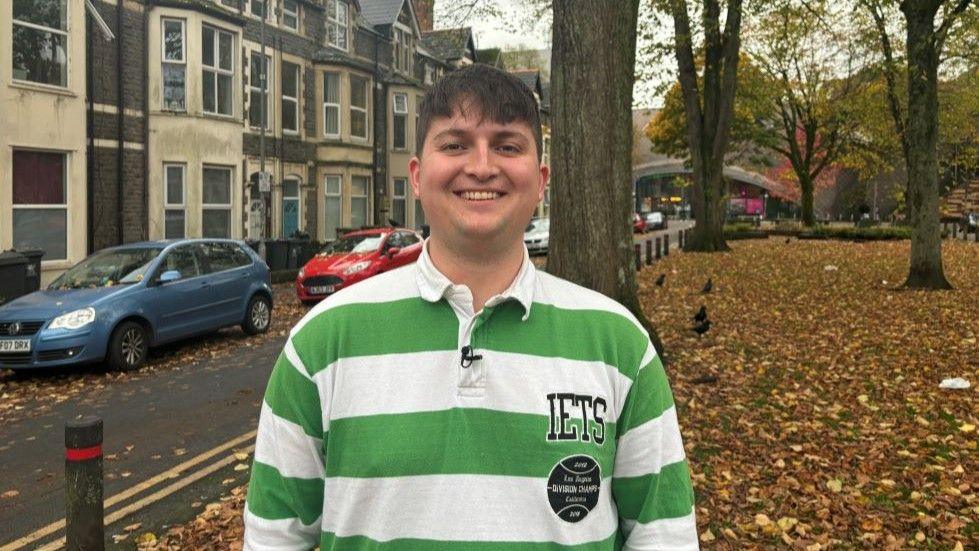City could stop students parking in residential spaces

Medical student Elain Edwards says students are angry and disappointed with the council's proposal
- Published
Students could be stopped from applying for residential parking permits in the Welsh capital.
Cardiff council is looking at options for managing cars in the city - and one of them is to stop people in student-only housing applying for permits.
It said the move would give full-time residents more opportunity to park and promote "active and sustainable travel" for students.
However, students called it "unfair", describing how it would make attending placements difficult.
Watch student's horror over dead mouse in her bed
- Published25 July 2024
Cost of living has made my student flat hostile
- Published5 November 2022
While any changes will not happen until at least Autumn 2026, and a consultation runs until December, students have voiced their concerns.
"I won't be able to go from one hospital to another which is a particular requirement on my course, I’ll also miss out on opportunities to go to specialist clinics," Elain Edwards told BBC Cymru Fyw.
The fourth year medical student said it will make things "really frustrating and quite inconvenient" with far less flexibility.
She added: "Everyone is angry and quite disappointed because it just shows that the council is putting students on the backburner again and they’re not really prioritising students."
Although she acknowledges the university provides buses to get to locations, she believes medicine is a course where a car is essential.

The potential permit changes could impact Eleri Davies' decision to enroll on a PGCE course next year
Eleri Davies, a third-year sociology student, said that being able to park a car is "key" for students in the capital.
She says the possibility of not having anywhere to park "will have a big effect on whether I’ll do the PGCE [teaching] course next year".
Eleri added she would have to catch the bus or train "which is great if the buses or trains are running or on time, but a lot of the times the trains aren't running, there are rail replacements, it's just an added stress to an already stressful year ahead of me".
"I feel like none of them [students] are aware, except a Facebook page," she added.
"They [the council] said they've put posters and QR codes around the street but I can’t see any."

The students' union believes the situation is "worrying" and is concerned students are being singled out
President of the Students' Union of Wales Deio Owen said: "As a union, we are very concerned about the effect this consultation will have on students and that students are singled out as a group that won’t be able to get these new parking permits if they are implemented.
"It's really concerning especially when it comes to placements and other reasons to travel such as shopping where students need their car for mobility, especially in an area in Cardiff where there's not as much public transport, such as buses, available throughout the day."
He described it as "worrying" and a "step backwards" by the council.
The proposal is part of a wide-ranging consultation on managing parking in the city. It will end on 1 December.
In creating what it calls "parking control areas", it wants to give residents a better opportunity to park on their street, or on roads adjacent to their home - while reducing the opportunities to park for commuters.
It proposes a range of options to achieve this, such as phasing out parking permits for people in outer areas of the city and those in student houses.
"Not providing the parking permits to these properties will reduce the impact of student vehicles on local residents and promote the use of active and sustainable travel by students," the proposal said.
A council spokesperson said: "The proposals could have a significant impact on student parking and we are engaging directly with student bodies at the three universities in the city to ensure students are informed and that they are made aware of the opportunity to take part.
"If restrictions are brought in for students studying in Cardiff, such a change would only come into place in Autumn 2026 at the earliest, giving ample time for students to consider alternative arrangements."
It added that 15% of respondents to the consultation were students and further engagement was taking place to increase this response rate further.